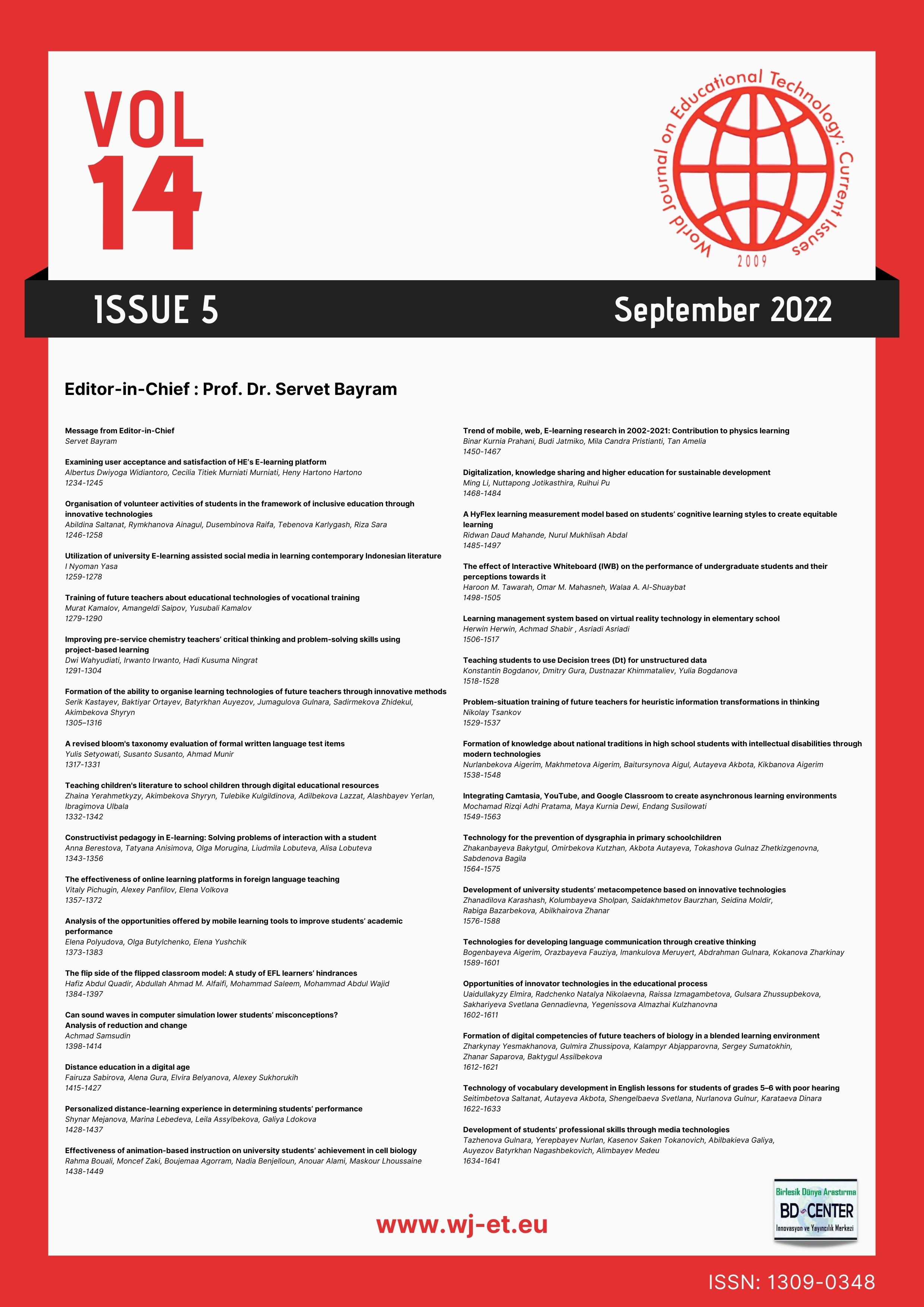Technology of vocabulary development in English lessons for students of grades 5–6 with poor hearing
Main Article Content
Abstract
The purpose of this research is to get teachers' opinions on the use of word development technology in English lessons for grade school students. In this study, the phenomenology design, one of the qualitative research models, was used. The study group for the research consists of 20 English teachers working in various schools for the hearing-impaired in Kazakhstan. Research data were collected with a semi-structured interview form developed by the researchers. As a result of the research, it has been determined that the majority of English teachers participating in the research support the use of technology in the education of hearing-impaired fifth- to sixth-grade students, and they sometimes use word development technology in the education of hearing-impaired fifth- to sixth-grade students. The majority of English teachers stated that they sometimes use word development technology in the education of hearing-impaired fifth- to sixth-grade students; that it has a positive effect on the participation of students with hearing impairments; that it makes it easier for students with hearing impairments to understand what they read; and that it facilitates the success of hearing-impaired students.
Keywords: Vocabulary development technology, English education, teacher opinions;
Downloads
Article Details

This work is licensed under a Creative Commons Attribution 4.0 International License.
World Journal on Educational Technology: Current Issues is an Open Access Journal. The copyright holder is the author/s. Licensee Birlesik Dunya Yenilik Arastirma ve Yayincilik Merkezi, North Nicosia, Cyprus. All articles can be downloaded free of charge. Articles published in the Journal are Open-Access articles distributed under CC-BY license [Attribution 4.0 International (CC BY 4.0)].
Birlesik Dunya Yenilik Arastirma ve Yayincilik Merkezi (BD-Center)is a gold open-access publisher. At the point of publication, all articles from our portfolio of journals are immediately and permanently accessible online free of charge. BD-Center articles are published under the CC-BY license [Attribution 4.0 International (CC BY 4.0)], which permits unrestricted use, distribution, and reproduction in any medium, provided the original authors and the source are credited.
